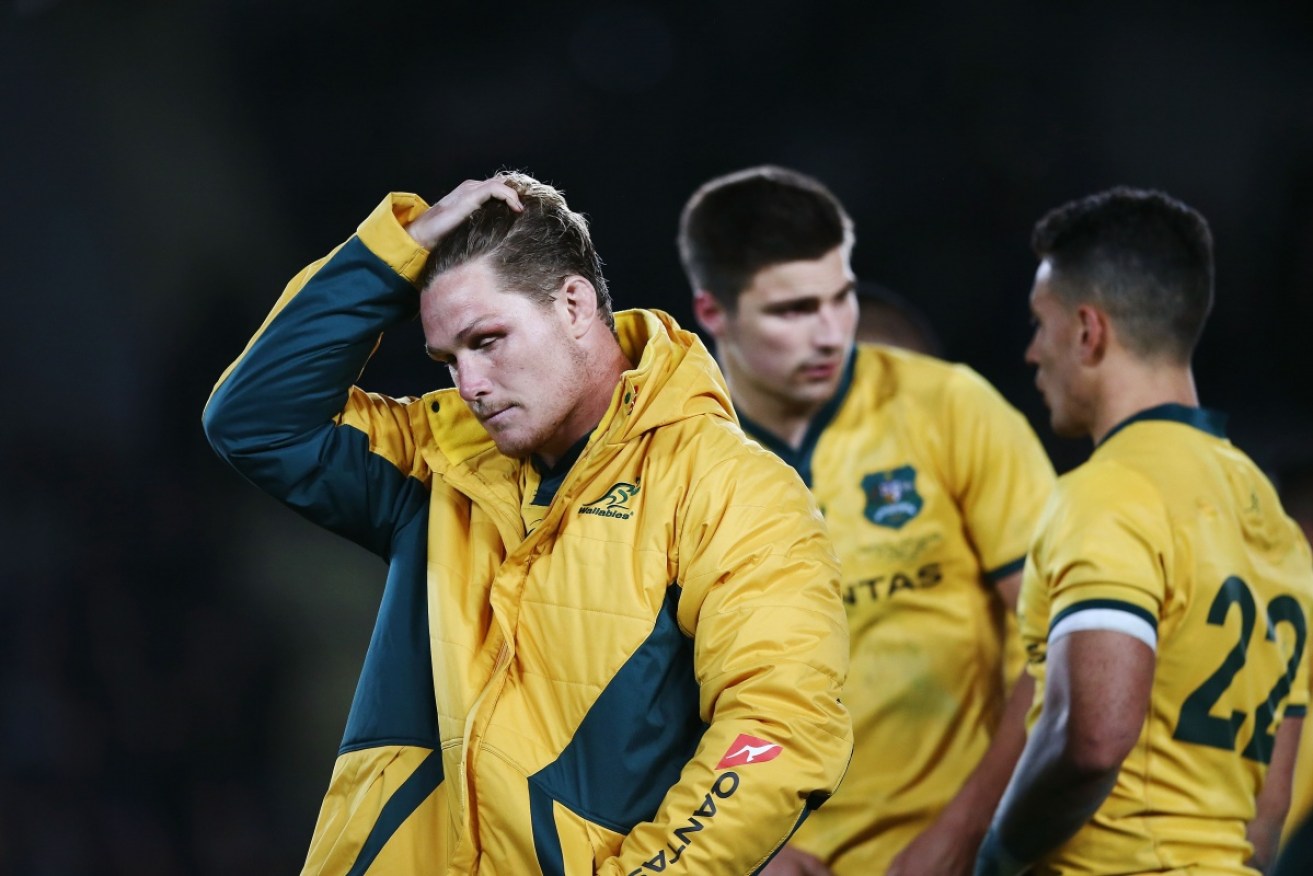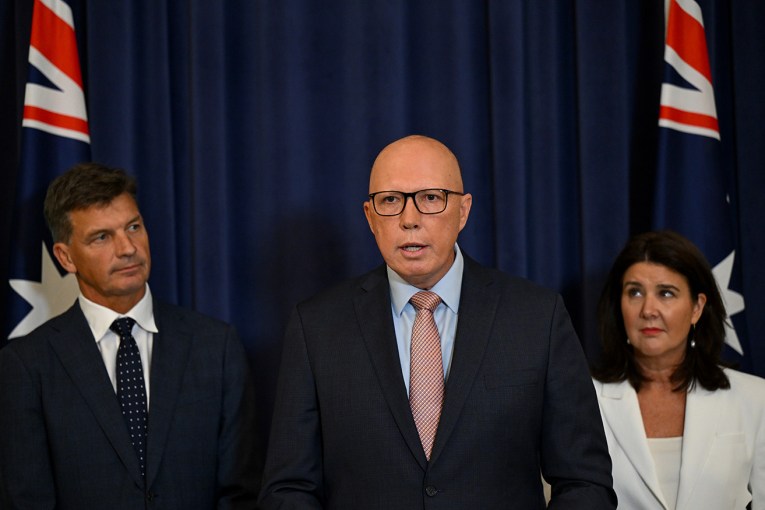Have the Wallabies killed the Bledisloe Cup?


The Wallabies feel the pain of another humiliating defeat. Photo Getty Images
Does rugby’s Bledisloe Cup mean anything any more?
This Saturday the Wallabies take on the All Blacks in Yokohama, Japan, in game three of the Bledisloe Cup for 2018.
This match has extra significance since Yokohama is where the 2019 Rugby World Cup will be decided, and the opportunity to use this match as an advance scouting mission provides a small, but important, advantage over other nations.
Which is just as well because – as has been the case far too often in recent years – the Bledisloe Cup is already locked away for safe keeping in New Zealand, well before any decider might offer Australian fans the excitement of a live third rubber and the sniff of winning it back.
The Bledisloe Cup – an impressive piece of silverware – was instituted in 1931, and competed for irregularly until 1981, since when it has been played for annually, usually in three-match series.
That the tally stands at New Zealand 47 wins, Australia 12 wins is bad enough. What grates even more is that Australia’s last win was in 2002, and in the 16 years since then, truth be told, it hasn’t really come close to winning it back.

All too easy. All Blacks star Kieran Read. Photo: Getty
Australian rugby is a complex beast, riven by internal politics, and a failure, since the game turned professional in 1995, of central administration to adequately balance the needs of the elite game at the top end, with the grassroots game across schools and clubs, countrywide.
Under new CEO Raelene Castle there has been a discernible change of emphasis, and an increased willingness to engage with the rugby community. But with Western Australia effectively doing its own thing, and a number of rugby luminaries announcing the formation of a new Association of Australian Rugby Clubs, to operate outside of existing governance channels, it is clear that the infighting will continue for some time yet.
In this respect Australian rugby may be no worse than other contemporary codes, but its challenges are compounded because of the global nature of the sport, where any commercial gain in the ‘rugby rich’ nations of England and France further weakens Australian rugby’s financial position, and its ability to hold on to star players and to promote the game domestically.
It’s a numbers game, and Australia’s inability to establish strong junior pathways and talent identification programs (Australia is a consistent also-ran at World Under-20 level), and depth in its coaching ranks, has now flowed through into the Wallabies.
The Wallabies currently sit at three wins and six losses for 2018, and patchy performance inevitably translates to declining crowd and TV numbers – and more headaches for frustrated administrators, caught in a vicious circle.
Rugby Australia can now only dream of the heady days, around the turn of the century, when Sydney’s Olympic Stadium was a guaranteed sell-out for Bledisloe Cup matches.
This year’s attendance of 66,000 was an improvement on 2017’s abject 55,000, but the empty seats tell a tale of fans not prepared to keep spending their money on a team not delivering results.
When the two sides run out on Saturday there will be only one Wallabies player, David Pocock, that fans from both sides would automatically agree would make the All Blacks, with only another two, Will Genia and Israel Folau, in the discussion.
That’s not to say that an upset isn’t possible, particularly if the Wallabies rediscover the form they belatedly found in their most recent match, away in Argentina, where they scored 38 points in an incredible second-half turnaround.
For their part, the All Blacks can be vulnerable in these types of dead rubbers, and will have one eye on a tough fortnight ahead of them, where they face Ireland and England in successive weeks.
Whatever happens, it’s too late to save the Bledisloe Cup for 2018.
Despite coming under intense media pressure, coach Michael Cheika has convinced Rugby Australia to keep him in his role through to the World Cup, which is now just under a year away.
While that will be a key focus for 2019, the best thing Cheika can do for Australian rugby in the meantime, is to restore the Bledisloe Cup to the forefront of public consciousness, by winning the damn thing.
Geoff Parkes is a rugby writer, based in Melbourne. His book A World In Conflict; The Global Battle For Rugby Supremacy was released in late 2018, to wide critical acclaim








